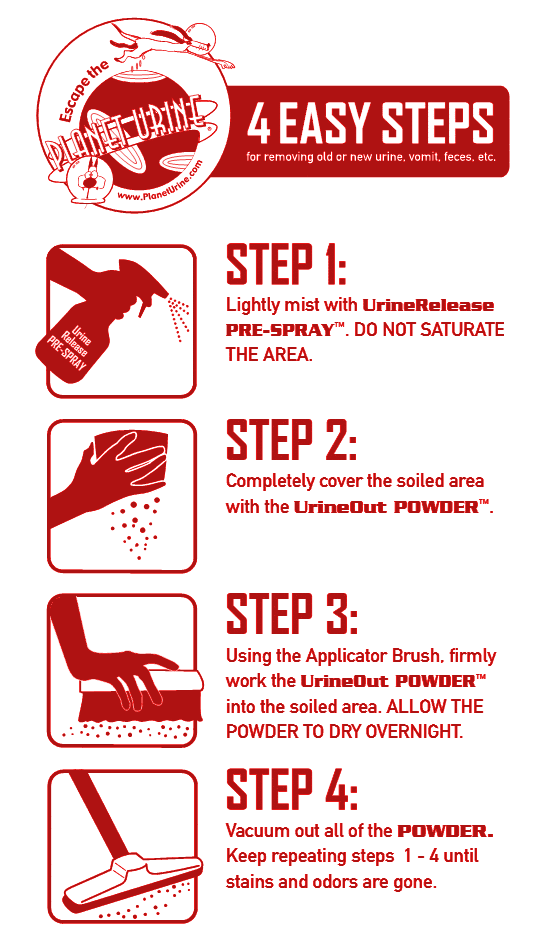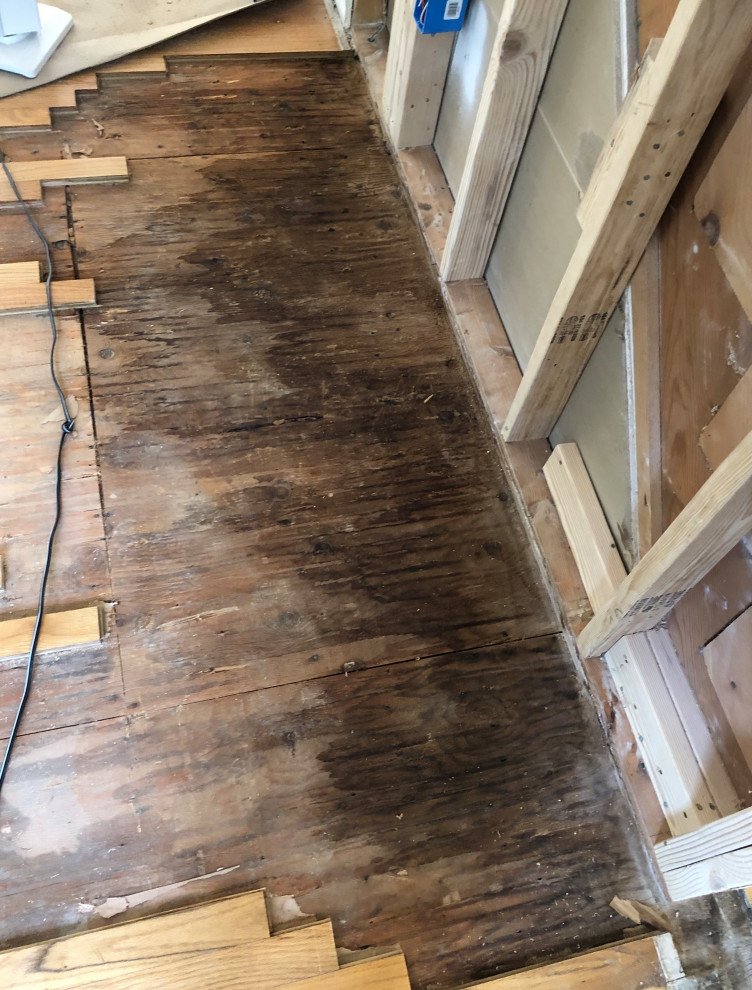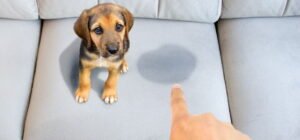How to Get Dog Smell Out of Hardwood Floors? To eliminate dog smell from hardwood floors, mix equal parts white vinegar and water. Use a soft cloth to wipe the area thoroughly.
Dogs bring joy and companionship, but they can also leave behind unpleasant odors. Hardwood floors tend to absorb these smells, making it essential to address the issue promptly. A few simple cleaning techniques can help restore your floors’ freshness. Regular maintenance not only keeps your home smelling clean but also protects your investment in hardwood.
Understanding the right cleaning agents and methods ensures that you don’t damage the floor while effectively removing odors. This guide will provide practical tips for keeping your hardwood floors smelling fresh, creating a welcoming environment for both you and your furry friend.
Table of Contents
Introduction To Pet Odors And Hardwood Floors
Dog odors can be a challenge for many pet owners. Hardwood floors, while beautiful, can trap these smells. Understanding how to manage pet odors is essential for a fresh home.
The Challenge Of Dog Smells In Your Home
Dog smells can linger, affecting your indoor air quality. Here are some common sources of these odors:
- Accidents on the floor
- Wet fur after a bath or rain
- Dog bedding and toys
These odors can be stubborn. Regular cleaning helps, but it may not be enough.
Why Hardwood Floors Absorb Odors
Hardwood floors are porous. This means they can absorb moisture and odors easily. Here are key reasons why:
| Factor | Impact on Odor |
|---|---|
| Pores in the Wood | Traps moisture and smells |
| Humidity | Increases absorption of odors |
| Dog Hair | Holds onto smells |
Regular maintenance is key to preventing odors from settling in. Simple cleaning routines can keep your home smelling fresh.

Credit: www.planeturine.com
Identifying The Source Of The Smell
Finding the cause of dog odor on hardwood floors is essential. This helps in effectively removing the smell. Start by checking specific areas where your dog spends time.
Locating Problem Areas
Begin your search in areas your dog frequents. Focus on spots like:
- Near their bed
- Where they eat
- Common play areas
- Entryways
Look for stains or discolored patches on the floor. Check for any moisture or dampness that can hold odors. Pay close attention to corners and under furniture.
Common Causes Of Persistent Odors
Several factors can cause dog odors to linger. Here are the common culprits:
| Cause | Description |
|---|---|
| Urine | Dog urine can seep into the wood. |
| Drool | Drool can leave sticky residues. |
| Feces | Accidents can cause strong odors. |
| Dirt and Mud | Outdoor play can track in smells. |
Identifying these sources is crucial. Once located, you can target your cleaning efforts effectively.
Regular Cleaning Habits
Maintaining a clean environment is vital for odor control. Regular cleaning habits keep your hardwood floors fresh. Implementing simple routines can significantly reduce dog smells. Focus on daily tasks and weekly maintenance for best results.
Daily Sweeping And Mopping
Daily sweeping and mopping can eliminate surface dirt and hair. Dust and dog hair trap odors, making cleaning essential.
- Sweep floors daily to remove debris.
- Mop with a mild cleaner designed for hardwood.
- Use a damp mop to avoid excessive water.
Choose cleaning products with pleasant scents. This helps mask any lingering odors. Always follow the manufacturer’s instructions for the best results.
The Role Of Vacuuming In Odor Control
Vacuuming plays a key role in odor control. It removes dirt, hair, and dander effectively.
- Use a vacuum designed for hardwood floors.
- Check for a HEPA filter to trap allergens.
- Vacuum at least once a week.
Focus on corners and under furniture where dirt accumulates. Regular vacuuming helps maintain a fresh atmosphere. Keep your vacuum clean to enhance its effectiveness.
Natural Odor Absorbers
Dog smell can cling to hardwood floors. Natural odor absorbers can help eliminate it. They are safe and easy to use. Here are two effective options: baking soda and activated charcoal.
Using Baking Soda Effectively
Baking soda is a powerful odor absorber. It neutralizes bad smells without harsh chemicals. Here’s how to use it:
- Sprinkle a generous amount of baking soda on the affected area.
- Let it sit for at least 15 minutes.
- Vacuum the area thoroughly.
For tough odors, leave the baking soda overnight. This allows it to absorb more smell. Repeat this process weekly for best results.
Benefits Of Activated Charcoal
Activated charcoal is another excellent option. It traps odors effectively. Here are some benefits:
| Benefit | Description |
|---|---|
| Natural | Safe for pets and kids. |
| Long-lasting | Can absorb odors for weeks. |
| Versatile | Works in various areas of your home. |
To use activated charcoal:
- Place it in small bowls around the room.
- Change out the charcoal every 2-3 weeks.
Both baking soda and activated charcoal can help keep your floors fresh.
Specialized Cleaning Solutions
Removing dog smell from hardwood floors requires specialized cleaning solutions. These products target tough odors, ensuring your home stays fresh. Two effective options are enzymatic cleaners and pH-neutral floor cleaners.
Enzymatic Cleaners For Organic Odors
Enzymatic cleaners work by breaking down organic materials. They target proteins and waste that cause lingering smells.
- Safe for pets and children.
- Effective on urine, feces, and vomit.
- Penetrates deeply into wood grains.
Choose a high-quality enzymatic cleaner. Look for these features:
| Feature | Description |
|---|---|
| Biodegradable | Environmentally friendly and safe to use. |
| Fast-acting | Works quickly to neutralize odors. |
| Non-toxic | Safe for pets and children. |
Apply the cleaner as per the instructions. Let it sit for the recommended time for best results.
Ph-neutral Floor Cleaners For Safety
pH-neutral floor cleaners are gentle on hardwood. They clean without damaging the finish. These cleaners maintain the wood’s natural beauty.
- Safe for regular use.
- Effective at removing dirt and grime.
- Prevents buildup that can trap odors.
Consider these points for choosing a pH-neutral cleaner:
- Check for compatibility with hardwood floors.
- Ensure it’s free from harsh chemicals.
- Look for a pleasant scent.
Follow the product instructions for best results. Regular cleaning keeps your floors fresh and odor-free.

Credit: www.reddit.com
Deep Cleaning Strategies
Dog odors can cling to hardwood floors. Regular cleaning may not be enough. Deep cleaning strategies can help remove stubborn smells.
Sanding And Refinishing For Stubborn Smells
Sometimes, odors are trapped deep in the wood. In these cases, sanding and refinishing may be necessary.
- Sanding removes the top layer of wood.
- It eliminates stains and odors.
- Use a fine-grit sandpaper for best results.
After sanding, refinishing protects the wood:
- Choose a quality wood stain.
- Apply a protective sealant.
- Allow it to dry completely.
This process can rejuvenate your floors and remove unwanted smells.
Professional Cleaning Services
Sometimes, hiring experts is the best option. Professional cleaning services specialize in removing tough odors.
| Service | Description | Benefits |
|---|---|---|
| Steam Cleaning | Uses high-pressure steam to clean floors. | Deep clean without harsh chemicals. |
| Enzyme Cleaning | Breaks down odor-causing substances. | Safe for pets and effective. |
| Wood Restoration | Restores the finish of hardwood. | Revives shine and eliminates smells. |
Hiring professionals saves time and ensures thorough cleaning. Choose a service with good reviews for best results.
Preventative Measures
Preventing dog smell on hardwood floors is crucial. Effective measures can save you time and effort. Focus on maintaining your floors and training your pets.
Protective Finishes To Repel Odors
Applying protective finishes can help keep your hardwood floors fresh. Here are some options to consider:
- Polyurethane: A durable finish that repels moisture and odors.
- Oil-based sealers: Provide a strong barrier against stains.
- Water-based finishes: Safe for pets and easy to clean.
Always choose non-toxic products. This ensures your pet’s safety. Regularly reapply the finish for maximum protection.
Training Pets For Fewer Accidents
Training your pets reduces accidents and odors. Here are effective training tips:
- Establish a routine: Take your dog outside regularly.
- Use positive reinforcement: Reward good behavior with treats.
- Identify triggers: Notice when accidents typically happen.
- Limit access: Keep pets out of certain areas when unsupervised.
Consistency is key. Reward your pet for going outside. This builds good habits quickly.

Credit: shop.truckmountforums.com
Dealing With Humidity And Moisture
Humidity and moisture can worsen dog odors on hardwood floors. High humidity traps odors, making them harder to eliminate. Controlling moisture levels is essential for a fresh home.
The Impact Of Humidity On Odor Retention
Humidity plays a crucial role in odor retention. Here’s how:
- Absorption: Wood absorbs moisture, trapping smells.
- Microbial Growth: High humidity encourages bacteria and mold growth.
- Persistent Smells: Odors linger longer in damp environments.
Keeping humidity levels low helps maintain a fresh scent. Aim for 30% to 50% humidity indoors.
Using Dehumidifiers To Combat Smell
A dehumidifier can significantly reduce odors. Here’s how it helps:
- Reduces Moisture: Dehumidifiers lower humidity levels.
- Improves Air Quality: Less moisture means better air quality.
- Prevents Mold: Dehumidifiers stop mold growth.
Choose a suitable dehumidifier for your space:
| Size of Room | Recommended Capacity |
|---|---|
| Small (up to 500 sq. ft.) | 30-50 pints |
| Medium (500-1500 sq. ft.) | 50-70 pints |
| Large (1500+ sq. ft.) | 70+ pints |
Regularly empty the dehumidifier’s water tank. Clean the filter often. This ensures efficient operation.
When To Call In The Professionals
Dog odors can be tough to eliminate, especially from hardwood floors. Sometimes, DIY methods aren’t enough. Knowing when to call in the professionals can save time and effort. Professionals have tools and expertise to remove deep-set smells.
Evaluating The Severity Of The Smell
Start by assessing the intensity of the odor. Here are some signs that the smell is severe:
- Odor persists after cleaning
- Smell is stronger in specific areas
- Odor affects the air quality
- Presence of stains or discoloration on the floor
If the smell is overwhelming or consistent, it’s time to consider professional help. Professionals can identify underlying issues. They can determine if there’s damage beneath the surface.
Options For Professional Odor Elimination
Professionals offer various methods for odor removal. Here are some common options:
| Method | Description |
|---|---|
| Steam Cleaning | Uses high-temperature steam to eliminate odors. |
| Ozone Treatment | Ozone generators neutralize odors effectively. |
| Enzyme Cleaners | Break down organic compounds causing smells. |
| Sanding and Refinishing | Removes the top layer of wood to eliminate odors. |
Choose a method based on the severity of the smell and your floor’s condition. Professionals can recommend the best approach. They ensure a fresh and clean living space.
Conclusion: Maintaining A Fresh-smelling Home
Keeping your home fresh is crucial, especially with pets. A clean environment promotes health and happiness. Here are effective strategies to ensure your hardwood floors stay odor-free.
Summing Up Effective Odor Removal Tactics
Use these tactics to remove dog smells from hardwood floors:
- Regular Cleaning: Sweep and mop floors weekly.
- Vinegar Solution: Mix equal parts of vinegar and water. Spray, then wipe.
- Baking Soda: Sprinkle on floors, let sit, then vacuum.
- Enzymatic Cleaners: Use products designed for pet odors.
Choose eco-friendly options for safety. Regular maintenance prevents buildup of odors.
Embracing A Holistic Approach To Odor Management
Consider these tips for a complete odor management strategy:
- Ventilation: Open windows to let fresh air in.
- Air Purifiers: Use devices with HEPA filters.
- Essential Oils: Add oils like lavender to diffusers.
- Pet Hygiene: Bathe and groom your dog regularly.
| Tip | Benefit |
|---|---|
| Regular Cleaning | Removes dirt and odors effectively. |
| Ventilation | Enhances air quality. |
| Air Purifiers | Traps allergens and odors. |
| Essential Oils | Creates a pleasant aroma. |
Combining these methods leads to a fresher home. A proactive approach ensures your space remains inviting.
Frequently Asked Questions
How Can I Remove Dog Odor From Hardwood Floors?
To remove dog odor from hardwood floors, start by cleaning the area with a mixture of vinegar and water. This natural solution neutralizes smells. After cleaning, sprinkle baking soda on the floor and let it sit for several hours. Vacuum it up to eliminate any lingering odors effectively.
What Cleaning Products Are Safe For Hardwood Floors?
Choose pH-balanced cleaners specifically designed for hardwood floors. Avoid harsh chemicals that can damage the finish. Look for products containing natural ingredients like vinegar or essential oils. Always test any cleaner in a small area first to ensure it won’t harm your floor’s surface.
How Often Should I Clean My Hardwood Floors?
Clean hardwood floors at least once a week to keep them fresh. For homes with pets, consider more frequent cleanings. Wipe up spills immediately to prevent odors. Regularly vacuuming can also help remove hair and dander that contribute to smells.
Can I Use Steam Cleaners On Hardwood Floors?
Steam cleaners are generally not recommended for hardwood floors. The heat and moisture can damage the wood and finish. Instead, opt for a damp mop or a specialized hardwood floor cleaner. This will effectively remove dirt without risking damage to your flooring.
Conclusion
Removing dog smell from hardwood floors is essential for a fresh home. By using natural cleaners and regular maintenance, you can keep odors at bay. Don’t forget to address any underlying issues. With these tips, your floors will remain clean and inviting, ensuring a pleasant environment for both you and your furry friend.



